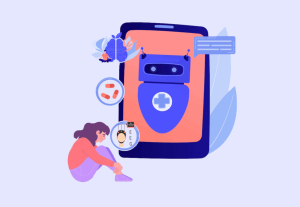- Artificial Intelligence, Generative AI, Psychology and Human Behavior
Repetitiveness, complicated setups, and lack of personalization deter users.
Article by Marlynn Wei
6 Ways to Improve Psychological AI Apps and Chatbots
- Personalized feedback, high-quality dynamic conversations, and a streamlined setup improve user engagement.
- People dislike an overly scripted and repetitive AI chatbot that bottlenecks access to other features.
- Tracking is a feature that engages users and develops an “observer mind,” enhancing awareness and change.
- New research shows that users are less engaged in AI apps and chatbots that are repetitive, lack personalized advice, and have long or glitchy setup processes.
Share:6 Ways to Improve Psychological AI Apps and Chatbots
Share this link
- February 6, 2024
3 min read






